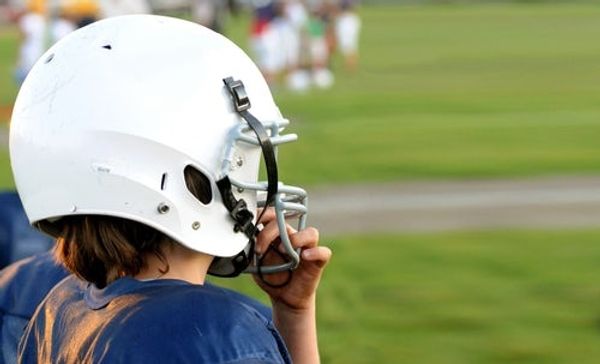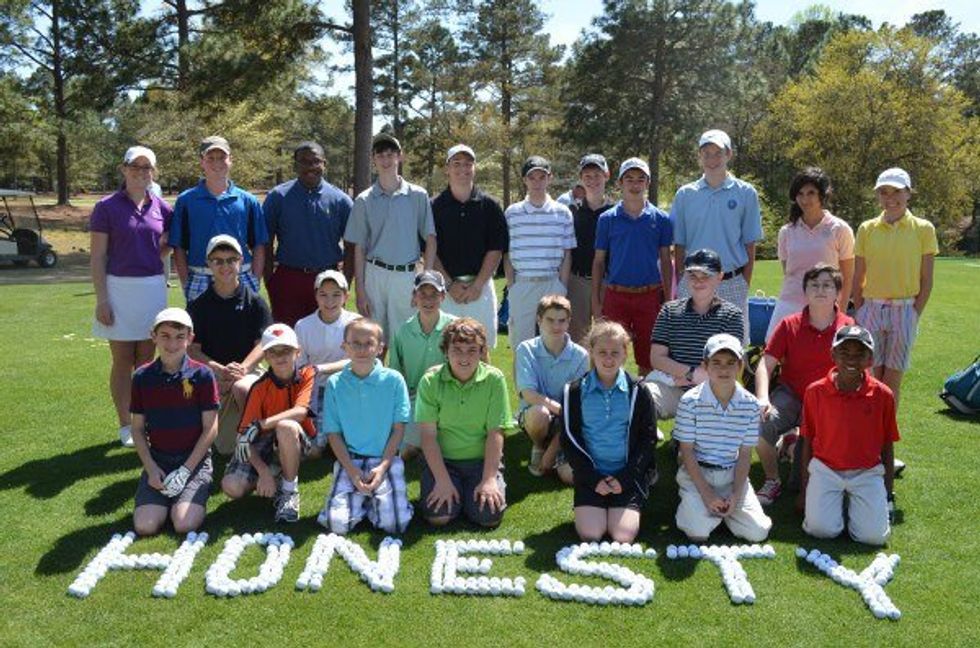In the spirit of the Masters and the unofficial start of the 2016 season, I would like to send a message to all the parents and future parents out there. Put your kids in golf.
Golf is a game that I dearly love. I picked it up in the summer before my freshman year of high school at the age of 14. I played all summer, learning the rules and the proper technique as I went. Now, as I am in my seventh year playing golf as a college athlete, I am more of a proponent of the sport than I ever have been. I believe without a doubt that golf is the best sport to get children involved in, no matter their age.
To start off, golf has physical benefits. Compared to other mainstream sports such as baseball, football, and basketball, golf has a low risk for injury. Along with that, golf involves a lot of walking with a bag, translating to plenty of exercise each round without being too intense or debilitating over time. There is also more emphasis on long-term full-body fitness and flexibility, rather than pure muscle building for strength. Thanks to these factors and the commonality of golf courses all around the world, golf is something that a person can do for the rest of his or her life.
Golf also has a lot of mental benefits. In competitive golf, complete focus is needed for hours at a time. Some of my college tournaments involve playing 36 holes in a single day, which can easily take over ten hours. Those are ten hours full of situational analysis, dealing with little failures in search of the little victories and applying oneself to the goal of shooting as low of a score as possible.
There have been books written about the similarities between golf and life, and I truly believe that, of all the sports I have ever been a part of, golf has taught me the most life skills. First of all, golf is hard. Very hard. It’s a sport that can extract a temper from the most mild-mannered of people. But life is also full of failures, and golf teaches a person how to deal with those little failures and move forward toward the bigger goal. It has a focus on honesty and etiquette instead of the “win at all costs” model that many sports push. In fact, the rules of golf begin not with typical rules, but with a guide to etiquette, or how to act on the course. The etiquette section includes everything from sportsmanship to honesty in calling oneself on penalties. No other mainstream sport pushes ethics like golf does.
Along with this emphasis on ethics, there is the aspects of perseverance, hard work, and goal-setting. Since golf is mostly an individual game, players can set personal goals and practice on their own. Since golf is a game that can never be perfected, and beating one’s opponent comes second to your score against par, perseverance and how one reacts to adversity are paramount. Along with the individual benefit, golf is a team sport in high school and college, which teaches teamwork and social interaction skills. Finally, goal-setting works well in golf, thanks to measurable and comparable outcomes. It also creates an endless list of possible goals. Even the champion of the Masters can play better, and there is always room for measurable improvement.
There are plenty of future benefits for kids that play golf. The latest that I have experienced is the sport’s prevalence in the business world. The golf course is a common place for business to be done, and knowing how to play the game can be very useful to one’s career, as I have already seen firsthand. Children who play sports growing up and through high school also tend to be more successful than those who don’t, and that correlation tends to be stronger in females than in males. One example is that multiple studies have shown that over 80 percent of female executives played high school sports. Another example of future benefits are the percentages of high school golfers that are offered college scholarships. The chances that a high school golfer gets a college scholarship are much higher than any other mainstream sport, especially for women.
Golf doesn’t have to be expensive. Children don’t need the latest and greatest clubs and equipment. You don’t need to be a member of a country club. Many courses have special deals for kids that make it very affordable, and non-for profit organizations like The First Tee have programs for kids that help teach the game in tandem with the life skills I have mentioned, emphasizing a set of behaviors and values to guide them for the rest of their lives. Who knows--maybe your kid will be the next Jordan Spieth. The great thing about golf is that, whether your kid goes on to win the Masters or can hardly hit the ball, the benefits of golf do not discriminate.





















